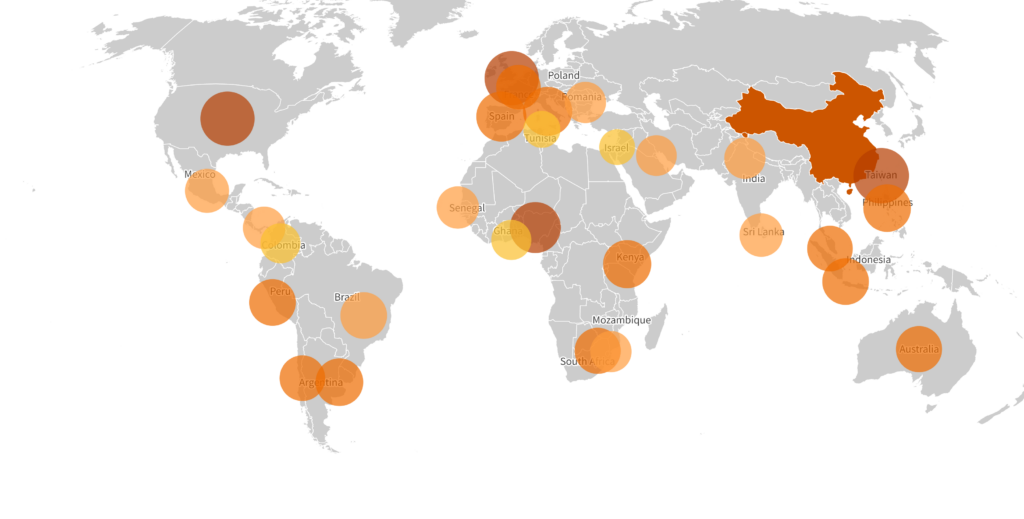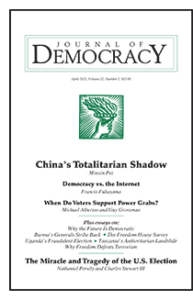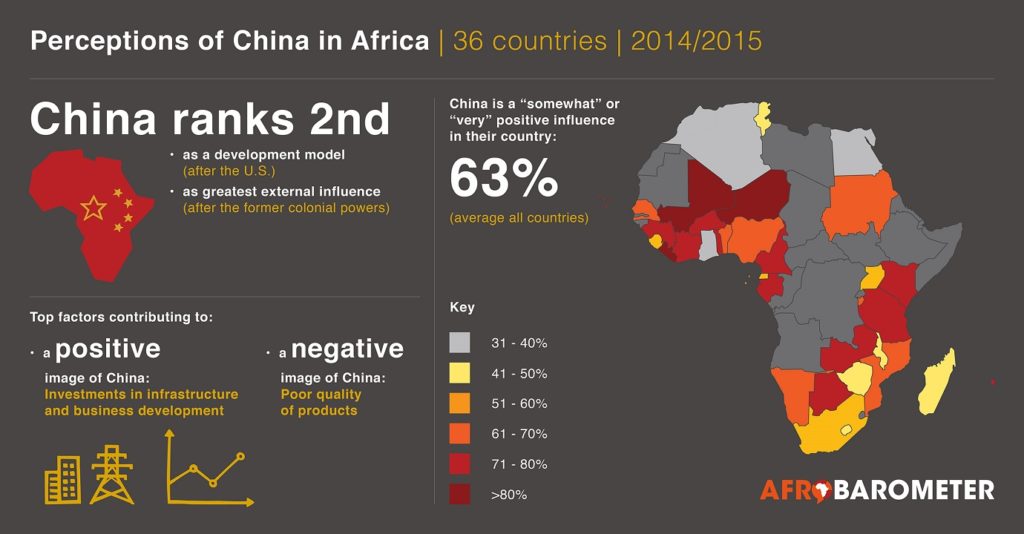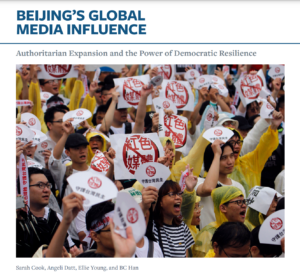 As the Chinese Communist Party (CCP) is poised to convene for its 20th Congress starting October 16, a new report from Freedom House* documents intensifying efforts by the party to shape news coverage in a diverse sample of 30 countries, notes Angeli Datt, the group’s senior research analyst.
As the Chinese Communist Party (CCP) is poised to convene for its 20th Congress starting October 16, a new report from Freedom House* documents intensifying efforts by the party to shape news coverage in a diverse sample of 30 countries, notes Angeli Datt, the group’s senior research analyst.
Its key finding: a free press is an essential component of a country’s resilience to influence campaigns by foreign authoritarian regimes, but that defence is often undermined by anti-democratic actions taken by the target nation’s own government, she writes for Al Jazeera.
 Why has Xi Jinping’s campaign of repression worked where other East Asian ones did not? asks analyst Fareed Zakaria. The answer lies in a brilliant 2021 Journal of Democracy essay by China scholar Minxin Pei. Pei points out that China is almost unique in the world today. Nearly every country with a per capita income higher than China’s is either a democracy of some sort or an oil and gas dictatorship. Why is China the great exception? Zakaria asks in the Washington Post:
Why has Xi Jinping’s campaign of repression worked where other East Asian ones did not? asks analyst Fareed Zakaria. The answer lies in a brilliant 2021 Journal of Democracy essay by China scholar Minxin Pei. Pei points out that China is almost unique in the world today. Nearly every country with a per capita income higher than China’s is either a democracy of some sort or an oil and gas dictatorship. Why is China the great exception? Zakaria asks in the Washington Post:
[National Endowment for Democracy board member] Pei revives an old distinction between authoritarian and totalitarian regimes. In the former, government is repressive but not all-encompassing. In the latter, such as China and the Soviet Union, the state dominates all spheres of life and does not allow an independent civil society to develop. The Chinese Communist Party dominates everything in China. When a social movement rises outside of the party, such as the Falun Gong, the party views it as a mortal threat and shuts it down.
In the conditions of a totalitarian state, Pei points out, the changes produced by economic growth lead to the need for more and more repression — producing, in China (and I would add Russia), a reversion to neo-Stalinism, Zakaria adds. RTWT
 As democracies grow increasingly concerned at China’s growing ‘sharp power’ in Africa, a French-backed forum to promote democracy among young people in the sub-continent began life on Friday, a year after the idea was unveiled at a French-African summit, AFP reports.
As democracies grow increasingly concerned at China’s growing ‘sharp power’ in Africa, a French-backed forum to promote democracy among young people in the sub-continent began life on Friday, a year after the idea was unveiled at a French-African summit, AFP reports.
The Innovation Foundation for Democracy (FIDEMO) seeks to “connect the African youth from all backgrounds at a time of common challenges for democracy in both Africa and Europe,” said its new head, Senagalese academic Souleymane Bachir Diagne. “Its programmes and tools will be dedicated to a wide audience, from researchers to artists, from social entrepreneurs to non-profit managers who are active in the field of democracy.”
With initial funding of 50 million euros over five years, the NGO will be based at Johannesburg’s University of the Witwatersrand, with three regional branches in Africa and an office in Marseilles, AFP adds. Cameroonian intellectual Achille Mbembe, the brainchild of the initiative, will be a member of its board
*Key Findings
-
 The Chinese government has expanded its global media footprint. The intensity of Beijing’s media influence efforts was designated as High or Very High in 16 of the 30 countries examined in this study, which covers the period from January 2019 to December 2021….
The Chinese government has expanded its global media footprint. The intensity of Beijing’s media influence efforts was designated as High or Very High in 16 of the 30 countries examined in this study, which covers the period from January 2019 to December 2021….- The Chinese Communist Party (CCP) and its proxies are using more sophisticated and coercive tactics to shape media narratives and suppress critical reporting. Mass distribution of Beijing-backed content via mainstream media, harassment and intimidation of outlets that publish news or opinions disfavored by the Chinese government, and the use of cyberbullying, fake social media accounts, and targeted disinformation campaigns are among the tactics that have been employed more widely since 2019.
- The success of Beijing’s efforts is often curtailed by independent media, civil society activity, and local laws protecting press freedom. Journalists, scholars, and civil society groups in all 30 countries responded to influence campaigns in ways that increased transparency, ensured diverse coverage, and enhanced local expertise on China….
- Inadequate government responses leave countries vulnerable or exacerbate the problem. Declines in press freedom and gaps in media regulations have reduced democratic resilience and created greater opportunities for future CCP media influence.
- Democracies’ ability to counter CCP media influence is alarmingly uneven. Only half of the countries examined in this study achieved a rating of Resilient, while the remaining half were designated as Vulnerable….
- Long-term democratic resilience will require a coordinated response. Governments, media outlets, civil society, and technology firms all have a role to play in enhancing democratic resilience in the face of increasingly aggressive CCP influence efforts. RTWT







